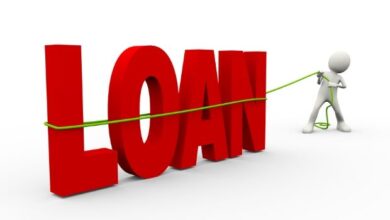
Have you thought about how your property’s value changes your mortgage? I have, and it’s really important for your money.
Knowing how property value and your mortgage are connected is key. A change in value can change your mortgage terms. This might affect your monthly payments and your financial safety.
An increase in property value might give you better mortgage deals. But a drop could limit your refinancing choices. Let’s look at how these changes impact your mortgage and how to handle any risks.
The Property Value-Mortgage Connection
The link between property value and mortgage is complex. Lenders check your credit score and income. But they also look at the property’s value when you apply for a mortgage.
This is because the property is used as collateral. Its value is key in figuring out the loan risk.
Why Lenders Care About Your Property’s Worth
Lenders worry about your property’s value because it affects their risk. A high-value property acts as a safety net if you can’t pay the loan. They use appraisals to check if the property’s value matches the loan amount.
This helps them make smart lending choices. They consider:
- Property location and condition
- Recent sales of similar properties
- Market trends
The Critical Loan-to-Value Ratio
The loan-to-value (LTV) ratio is very important. It shows how much of the property’s value you’re borrowing. For example, if you buy a $200,000 home with a $40,000 down payment, you borrow $160,000.
This makes the LTV ratio 80%. Lenders use this ratio to decide on loan terms. This includes interest rates and if you need private mortgage insurance (PMI).
Knowing about the LTV ratio helps you understand mortgages better. It’s key for making smart choices about your home financing.
Property Appraisals: The Make-or-Break Moment
Understanding property appraisals is key to your mortgage. It’s important for homeowners to know how it affects their loan.
Inside the Appraisal Process
A licensed appraiser checks your property’s value. They look at its condition, size, and location. They also check recent sales of similar homes.
This is important. It gives lenders a clear view of your property’s worth. This helps them decide if they’ll approve your mortgage.
My Strategy for Handling Low Appraisals
If your appraisal is lower than you hoped, don’t worry. Negotiating with your lender can help.
You can also provide new info to support a higher value. Or, you might need to talk about a lower price or other loan options.
The Impact of Property Value on Your Mortgage
Property value affects your mortgage in many ways. It impacts interest rates and down payment needs. Knowing this helps homeowners make smart mortgage choices.
How Value Determines Your Interest Rate
Your property’s value affects your interest rate. A higher value means a better rate because lenders see less risk. For example, a $300,000 home with a 20% down payment is seen as safer than one with less down.
Down Payment Dynamics in Today’s Market
Today, down payments depend on property value. Usually, 20% is the goal, but it can change. FHA loans might need only 3.5% down. Knowing how your down payment affects your loan is key.
The PMI Threshold: Why 20% Equity Matters
Private Mortgage Insurance (PMI) is tied to property value. You need PMI for down payments under 20%. But, with 20% equity, you can drop PMI, saving money each year. This shows why property value is crucial for mortgage costs.
| Down Payment Percentage | Loan-to-Value Ratio | PMI Requirement |
| Less than 20% | 80% or higher | Yes |
| 20% or more | Less than 80% | No |
When Property Values Shift: Effects on Your Mortgage
When property values change, homeowners need to know how it affects their mortgage. These changes can impact your mortgage in many ways. This includes the interest rate and how property taxes and insurance adjust.
Fixed-Rate Security vs. ARM Vulnerability
A fixed-rate mortgage keeps your interest rate stable. This protects you from rate hikes due to property value changes. On the other hand, an Adjustable-Rate Mortgage (ARM) can be more at risk. If property values fall, you might owe more on your mortgage than your home is worth. This could lead to higher rates or stricter loan terms.
Key differences between fixed-rate and adjustable-rate mortgages:
| Feature | Fixed-Rate Mortgage | Adjustable-Rate Mortgage |
| Interest Rate | Remains constant | Can change based on market conditions |
| Risk Level | Lower risk | Higher risk due to potential rate increases |
| Monthly Payments | Predictable | Can vary |
Property Tax and Insurance Adjustments
Changes in property value can also affect property taxes and insurance. If your property value goes up, your property taxes might increase. This can change your escrow payments. Insurance premiums can also go up as your home’s value increases. This is because it costs more to rebuild or repair your home.
According to a recent study, “a 10% increase in property value can lead to a corresponding rise in property taxes, affecting homeowners’ monthly mortgage payments.”
It’s important to understand these changes. This helps you manage your mortgage better. It also helps you make smart choices about your property.
Market Forces Shaping Your Home’s Value
As a homeowner, knowing what affects your home’s value is key. Many things can change how much your home is worth. Knowing these can help you make smart choices in the real estate world.
Neighborhood Transformation: Blessing or Curse?
Changes in your neighborhood can really change your home’s value. New buildings, roads, or people moving in can help or hurt your home’s worth. For example, new parks or shops can make your home more valuable. But, more noise or traffic might make it less valuable.
Economic Indicators I Watch as a Homeowner
Watching things like jobs, interest rates, and the economy’s growth is important. These signs tell you how the real estate market is doing. For instance, more jobs can mean more people want to buy homes, which can make your home more valuable.
Location Factors That Consistently Drive Value
Where your home is matters a lot. Being close to good schools, public transport, and fun places can make your home more valuable. Also, how well your area is run, like the police and trash service, affects your home’s value too.
| Location Factor | Impact on Property Value |
| Proximity to Good Schools | Increases demand and value |
| Public Transportation | Enhances accessibility and value |
| Amenities (Parks, Recreational Facilities) | Boosts desirability and value |
My Proven Value-Boosting Home Improvement Strategies
Boosting your home’s value with smart renovations is something I’ve learned. As a homeowner, I’ve found that the right improvements can really up your property’s value. Here, I’ll share my top tips on renovations that pay off and what maintenance is key.
High-ROI Renovations Worth Your Investment
Not all home improvements are the same. Some give you a much better return on investment (ROI). For example, a smart kitchen renovation can get you back up to 80% of what you spent. Upgrading your bathroom and adding new siding or windows also offer big returns.
| Renovation Project | Average ROI |
| Kitchen Renovation | 80% |
| Bathroom Upgrade | 70% |
| Exterior Siding Replacement | 75% |
Maintenance Priorities That Protect Value
Renovations can increase your home’s value, but regular upkeep is key to keeping it that way. Tasks like checking your roof, plumbing, and HVAC are important to avoid big repair costs later. Also, keeping your home’s outside looking good, like painting and landscaping, can impress buyers if you sell.
“The way to get started is to quit talking and begin doing.” – Walt Disney
By choosing renovations that pay off and keeping up with maintenance, you can keep and grow your home’s value over time.
Capitalizing on Appreciation: Smart Refinancing Moves
When property values go up, homeowners can use smart refinancing. This can lower interest rates, cut down monthly payments, or let you use home equity.
It’s key to know the different refinancing options. There are rate-and-term refinancing and cash-out refinancing. Each has its own benefits for different financial needs.
Rate-and-Term Refinancing: Timing Is Everything
Rate-and-term refinancing means getting a new loan with a different interest rate or term. This can lower your monthly payments.
If interest rates drop, refinancing can save you a lot. But, timing is important. Refinancing too early or late can affect your savings.
“Refinancing to a lower interest rate can save homeowners a significant amount on their monthly mortgage payments, but it’s crucial to factor in the costs associated with refinancing to ensure it’s a cost-effective decision.”
Cash-Out Refinancing: When It Makes Sense
Cash-out refinancing lets you get cash by taking out a bigger loan than your current one. It’s good for home improvements, paying off debt, or big expenses.
If your home’s value has gone up, you can use cash-out refinancing. But, think about the risks, like losing your home if you can’t repay the loan.
| Refinancing Option | Key Benefits | Considerations |
| Rate-and-Term Refinancing | Lower interest rates, reduced monthly payments | Timing is crucial; consider refinancing costs |
| Cash-Out Refinancing | Access to cash for home improvements or debt consolidation | Risk of losing your home if unable to repay; consider loan terms |
Choosing to refinance should be based on a deep look at your finances and goals. Knowing the options and their effects helps homeowners make smart choices.
Building Wealth Through Home Equity
Being a homeowner means you have a powerful tool. Home equity is the value of your home minus the mortgage. It’s a big asset for loans or credit, helping with big expenses or investments.
Home equity is key to your financial plan. It gives you security and chances to grow wealth. For example, as your home value goes up, so does your equity. This can be a lot, especially in good real estate markets.
Beyond the Mortgage: Equity as a Financial Tool
Home equity is more than just an asset. It’s a tool for smart financial moves. You can get a loan or credit line for home fixes, paying off debt, or education costs.
Strategic Uses for Your Home Equity
There are smart ways to use your home equity. One way is to get a loan for home updates, which can raise your home’s value. Another is to invest in things like stocks or real estate trusts.
| Strategic Use | Benefits |
| Home Renovations | Increases home value, improves living conditions |
| Debt Consolidation | Simplifies finances, potentially lowers interest rates |
| Investments | Diversifies portfolio, potential for higher returns |
When Values Drop: Surviving an Underwater Mortgage
Many homeowners face a tough spot when property values fall. This can make the mortgage balance higher than the home’s worth. It’s a stressful financial situation.
Homeowners in this spot need to look for help. There are ways to ease the stress of an underwater mortgage.
Options I’d Consider in a Negative Equity Situation
Homeowners have a few choices when facing negative equity:
- Renegotiate the loan: Sometimes, lenders can change the loan terms to help.
- Short sale: Selling the house for less than the mortgage can work, but the lender must agree.
- Deed-in-lieu of foreclosure: Giving the title to the lender is a last choice, but it might affect taxes.
Assistance Programs Worth Exploring
There are programs to help homeowners with underwater mortgages:
- Hardest Hit Fund: This program helps homeowners in certain states.
- FHA Short Sale: An FHA program for selling the house and avoiding foreclosure.
- Mortgage modification programs: These can change loan terms to make payments easier.
Knowing about these options and programs can help homeowners deal with underwater mortgages.
Property Value Implications Across Different Loan Types
As a homeowner, knowing how loan types affect your property’s value is key. Different mortgages have different effects on your property’s worth. This can greatly change your financial situation.
The loan you pick can change your property’s value in many ways. For example, the loan-to-value ratio, interest rates, and how long you pay back the loan can vary. It’s important to understand these differences to make smart mortgage choices.
Conventional vs. FHA/VA: Value Requirements Compared
Conventional, FHA, and VA loans have different rules for property value. For example, conventional loans usually need a bigger down payment and a stricter appraisal than FHA loans.
| Loan Type | Down Payment Requirement | Appraisal Process |
| Conventional Loan | 20% (typically) | More stringent |
| FHA Loan | 3.5% (minimum) | Less stringent |
| VA Loan | 0% (for eligible veterans) | Specific appraisal requirements |
High-Value Properties: Jumbo Loan Considerations
Jumbo loans are for very expensive homes that go beyond what regular loans cover. These loans have stricter rules, like needing a high credit score and a big down payment.
It’s crucial to understand how different loans affect your property’s value. By picking the right loan, you can get better mortgage terms and keep your investment safe.
The Tax Dimension of Property Value Changes
Changes in property value can affect taxes a lot. This includes property tax assessments and tax benefits for homeowners. It’s important to know these effects to make good choices about your property.
Property value changes can also change your property taxes. Property tax assessments are based on your home’s value. So, if your home’s value goes up or down, your taxes might change too.
Challenging Your Property Tax Assessment
If you think your property tax is too high, you can fight it. Collect evidence like recent sales of similar homes in your area. This can help your case.
Maximizing Homeownership Tax Advantages
Being a homeowner has tax perks like the mortgage interest and property tax deductions. Knowing how to use these can save you a lot of money.
“In this world, nothing can be said to be certain, except death and taxes.” – Benjamin Franklin. This saying is very true for property taxes and homeowners.
Conclusion
Understanding how property value affects your mortgage is key. It helps you make smart choices about your home. Knowing this can guide you through the mortgage world.
Property appraisals, loan-to-value ratios, and refinancing options all tie back to property value. Homeowners can use this knowledge to improve their financial situation. It’s important for both new and experienced homeowners.
The link between property value and mortgage is complex. But, by staying up-to-date and adapting to market changes, homeowners can grow their investment. This leads to a more stable financial future.




